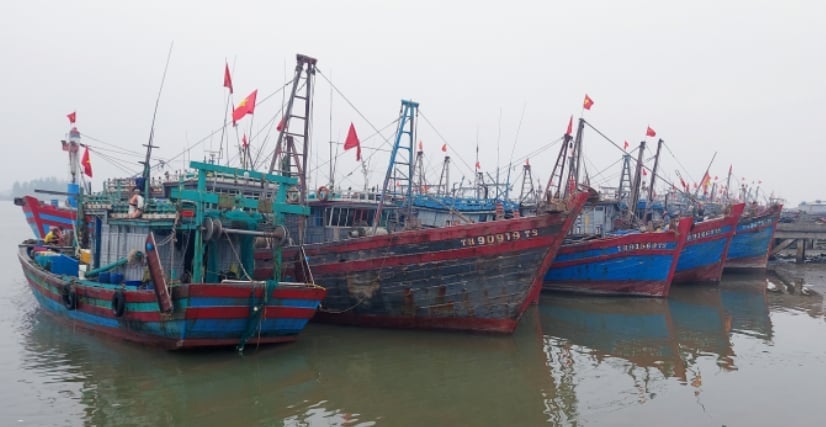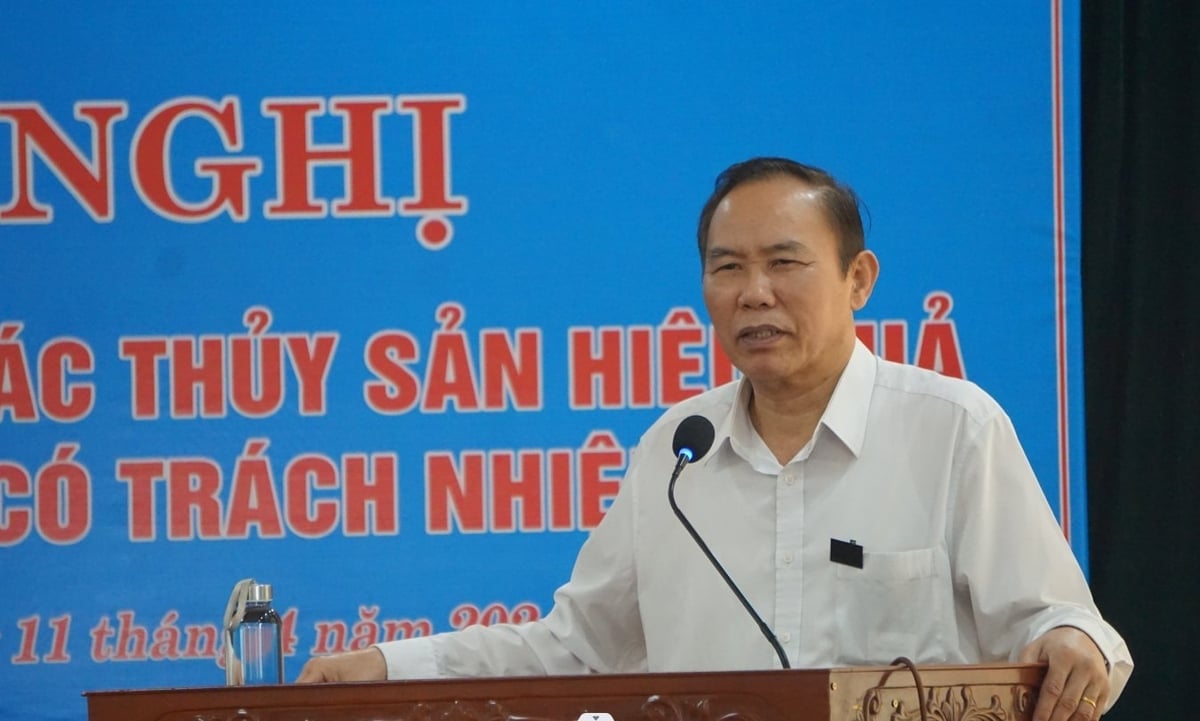December 8, 2025 | 01:32 GMT +7
December 8, 2025 | 01:32 GMT +7
Hotline: 0913.378.918
December 8, 2025 | 01:32 GMT +7
Hotline: 0913.378.918
The Ministry's report indicates that the nation has 78 fishing ports and 80 fishing vessel shelter areas, as well as over 82,000 fishing vessels and 2,000 seafood and aquatic product processing facilities.
From 2010 to 2024, the fisheries sector has been responsible for the employment of more than 4 million individuals and has sustained an average annual growth rate of 3%. Capture fisheries production ranks seventh globally, contributing approximately 10% of the agricultural GDP.
Nevertheless, the industry continues to encounter numerous significant obstacles. These include the following: underdeveloped post-harvest infrastructure and services, widespread illegal, unreported, and unregulated (IUU) fishing practices, declining fishery resources, overfishing with low economic efficiency, and fragmented, spontaneous production lacking coordinated value chains.

Thanh Hoa province has had more than 1,000 fishing boats with a length of 15m or more installed with voyage monitoring equipment, reaching a rate of 100%. Photo: Quoc Toan.
These problems are the result of an imbalance between the regenerative capacity of marine resources and the fishing activity. The fishing fleet is mainly small-scale and technologically outdated. Investment in infrastructure, technology, and human resource development remains restricted. Additionally, irresponsible and detrimental fishing practices persist as a matter of concern.
The Ministry of Agriculture and Environment is urging local authorities to implement a variety of measures in order to achieve the fisheries development objectives established for 2030, which include an annual sectoral growth rate of 3–4%, a capture fisheries output of 2.8 million tons, and export revenue of 5 billion USD.
These include the effective implementation of co-management mechanisms for resource protection, the enhancement of marine conservation efforts, the protection and restoration of aquatic resources, a decrease in capture fisheries, and the promotion of marine aquaculture. Additionally, localities that have the potential for marine farming are encouraged to transition to aquaculture and aquaculture-related services, while also providing support for coastal communities' livelihood transitions.
The Deputy Minister has issued a warning that localities will be held accountable for IUU violations.
Phung Duc Tien, the Deputy Minister of Agriculture and Environment, underscored the pressing necessity for provinces to prioritize vessel registration and inspection, as well as to finalize the installation of vessel monitoring systems (VMS), as a critical strategy for combating IUU fishing, during the conference "Developing Responsible, Efficient, and Sustainable Fisheries" in Thanh Hoa on April 11.
Deputy Minister Tien emphasized the significance of closely monitoring offshore fishing vessels, stating that "illegal fishing has shown signs of decline since we began taking firm action against vessels violating foreign waters." However, the fisheries sector may encounter major obstacles in the near future if sustainable development efforts are not coordinated with the prevention of IUU.

Deputy Minister Phung Duc Tien gave a speech at the conference. Photo: Quoc Toan.
He also encouraged local authorities to impose severe penalties on all vessels with disconnected VMS systems, regardless of the circumstances: "Under current regulations, any vessel that loses connection for more than six hours must be fined. Post-inspection comes after enforcement. We’ve tackled much larger issues, surely we can manage something as basic as penalizing VMS disconnections.”
Deputy Minister Tien has reported that there are still alarming instances of vessels trading aquatic products without the necessary documentation and vessels making few port visits despite frequently venturing out to sea. These violations require a decisive response. It is imperative that local governments and pertinent agencies do not remain inactive. Any province where illegal fishing occurs will be publicly criticized.
He further emphasized the role of grassroots-level enforcement: “With the deployment of regular police officers down to the commune level, managing and supervising fishing fleets, and IUU fishing in general, must be carried out rigorously and consistently, with close coordination between all enforcement agencies, particularly local police forces. Ending IUU fishing must start at the commune and ward level and be closely tied to local government accountability,” he stated.
According to the report of the Department of Fisheries and Fisheries Surveillance, the country's seafood output in the first quarter reached nearly 2 million tons, up 2.8% over the same period last year. Of which, the output of exploitation reached about 880,000 tons, almost flat (+0.1%) while the output of aquaculture reached more than 1.1 million tons, up 5.1%. Seafood export turnover reached 2.29 billion USD, up 18.1% over the same period in 2024.
Translated by Linh Linh

(VAN) At the TARASA25 Conference, participating countries shared experiences on implementing agroecology and regenerative agriculture, contributing to a sustainable transformation of food and agriculture systems.

(VAN) Green industry is becoming a driving force for the development of Hue City, not only promoting economic growth but also protecting the environment, creating the foundation for the Net Zero goal.

(VAN) As of 2025, the ASEAN region has a total of 69 ASEAN Heritage Parks recognized across its 10 member states. Among them, Viet Nam contributes 15 ASEAN Heritage Parks.

(VAN) Yok Don National Park has high biodiversity with numerous endemic plant and animal species, and it is also the only dipterocarp forest ecosystem conservation area in Viet Nam.

(VAN) Viet Nam and Brunei signed two important MOUs on fisheries and IUU, expanding cooperation in agriculture, the environment, and Halal exports, aiming to substantively implement joint projects.

(VAN) The Viet Nam Coconut Association worked with the International Finance Corporation (IFC) and businesses to promote the supply chain, enhance competitiveness, and develop the coconut industry sustainably.
![Hue aims for Net Zero: [2] Pioneering low-emission tourism](https://t.ex-cdn.com/nongnghiepmoitruong.vn/608w/files/huytd/2025/12/04/0633-dulichzero-4-095634_236-161125.jpg)
(VAN) The ancient capital of Hue has developed Net Zero tourism products and models, aiming to reduce carbon emissions and pioneer the establishment of Viet Nam's green tourism destination.